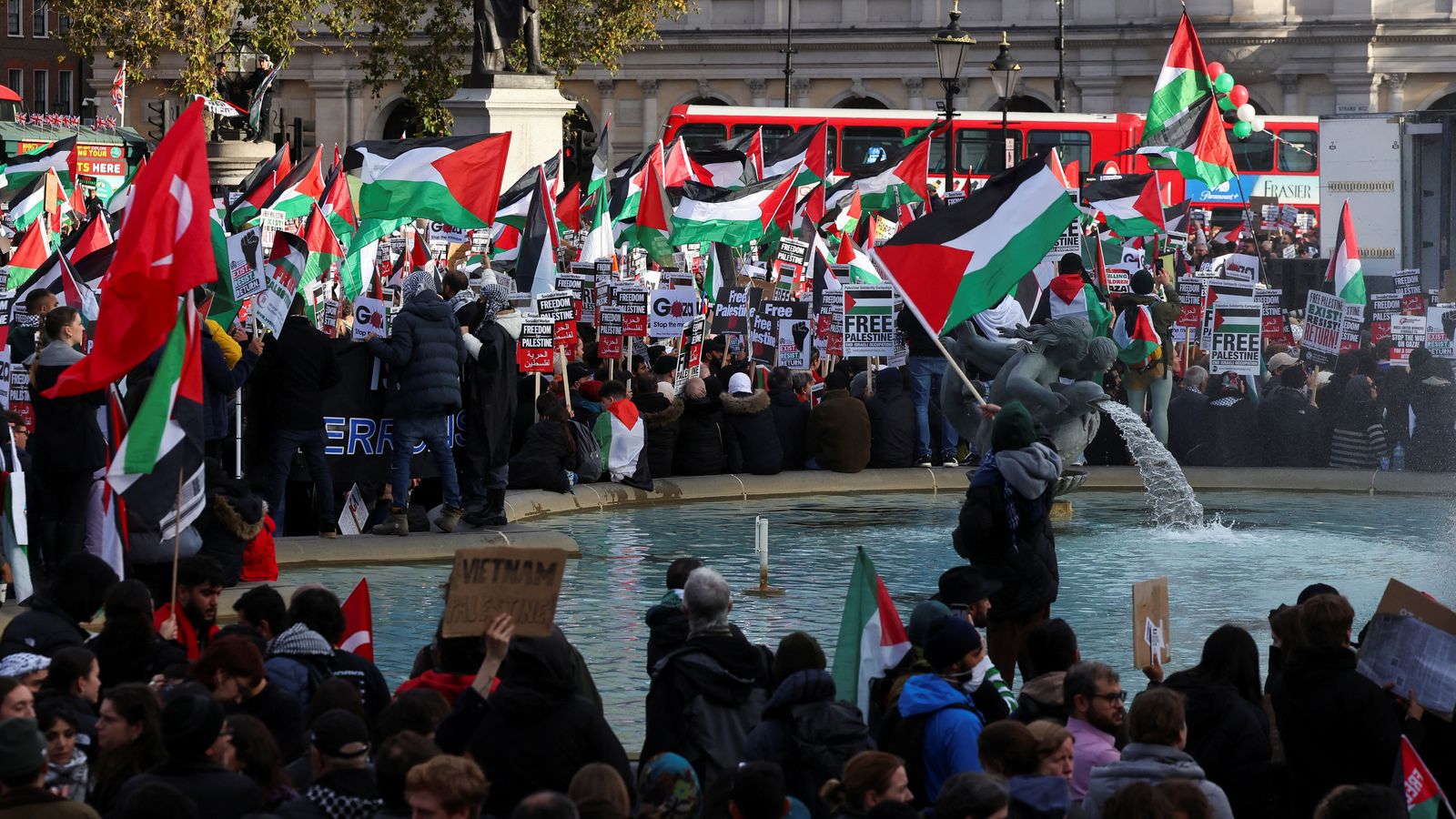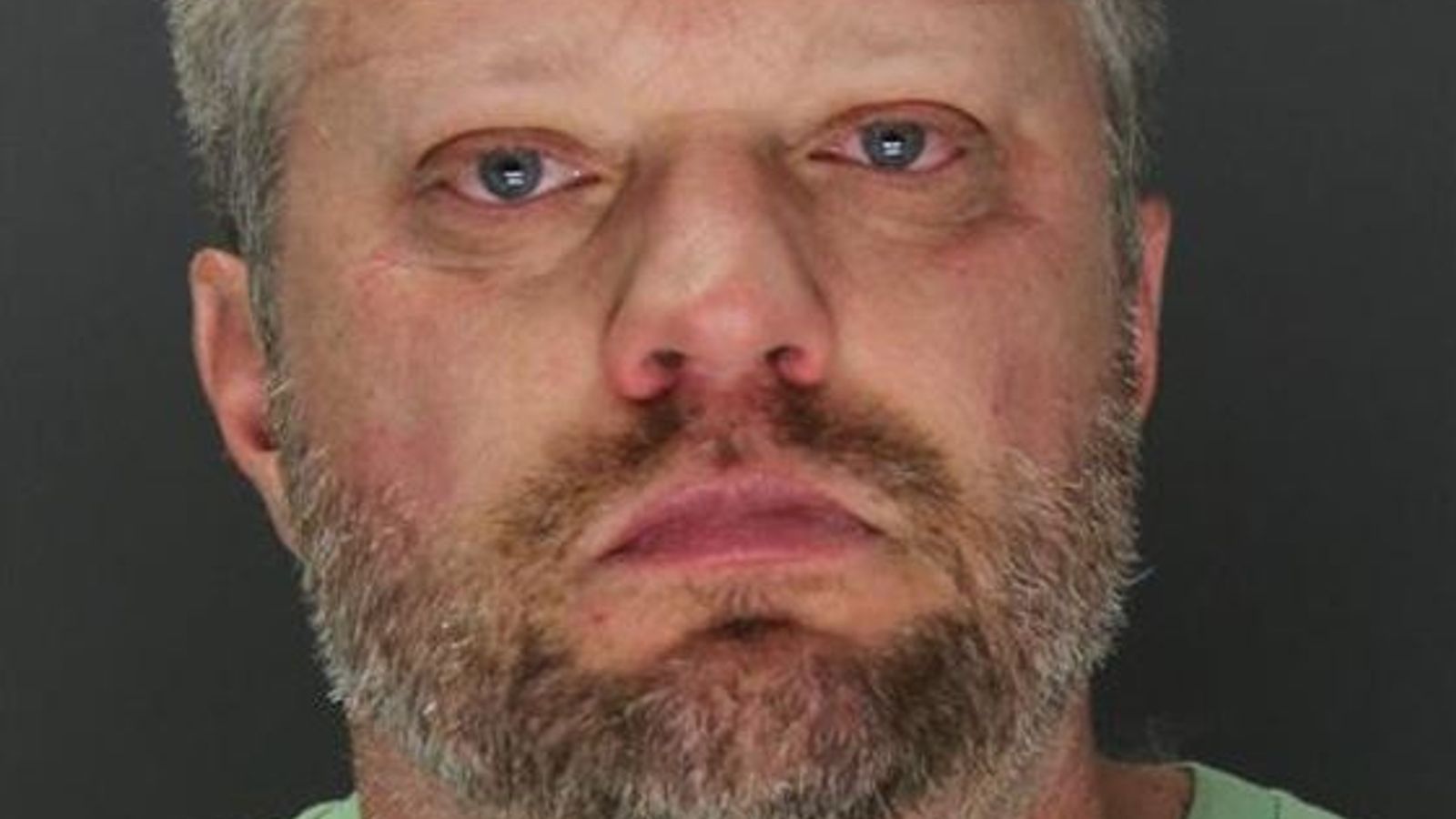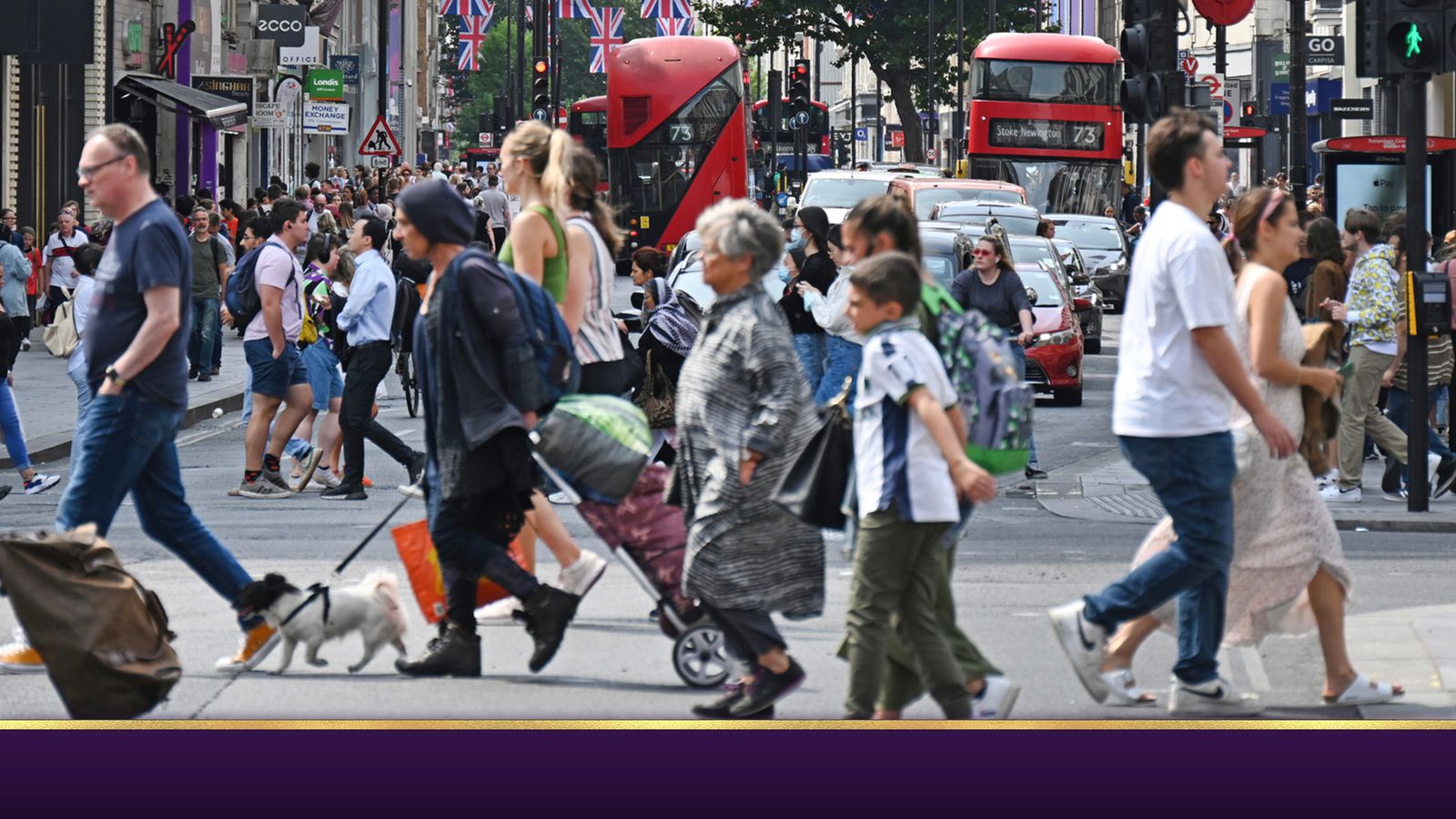More than 2,000 officers from the Metropolitan Police and other UK forces will be on duty for a “significant” operation across remembrance weekend.
The Met says its plan covers both Armistice and remembrance events as well as a significant march by the Palestine Solidarity Campaign.
A political row erupted this week over comments made by Home Secretary Suella Braverman, who criticised the Met over its decision to allow the pro-Palestine protests to go ahead.
After meeting the Met commissioner, the prime minister said he will hold the force accountable for allowing the demonstrations to go ahead.
In a lengthy statement, the force said: “We know the cumulative impact continued protest, increasing tensions, and rising hate crimes are having across London and the fear and anxiety our Jewish communities, in particular, are feeling. They have a right to feel safe in their city, knowing they can travel across London without feeling afraid of intimidation or harassment.
“We’ll be using an extensive set of powers to prevent any disruption whatsoever to remembrance events, policing the demonstration as it passes through parts of the capital, while protecting our communities from those intent on inciting hate, violence and disorder.”
The police have set up exclusion zones covering the Cenotaph, Whitehall, Horse Guards Parade, the Westminster Abbey Field of Remembrance and other relevant areas.
They say “anyone believed to be part of, or associated with, the pro-Palestinian demonstration trying to assemble in this area can be arrested”.
Prince Harry wins bid for privacy trial against Daily Mail publisher
British holidaymakers killed by pesticide to exterminate bed bugs in Egypt hotel, coroner rules
Suella Braverman: Chancellor distances himself from home secretary’s criticism of Met Police’s stance on pro-Palestinian demonstrations
The Met has detailed the powers it will be exercising over the weekend, putting exclusion zones in place in Whitehall, Horse Guards Parade, the Westminster Abbey Field of Remembrance and other relevant areas, adding anyone on the pro-Palestinian march in these areas will be arrested.
The Cenotaph will have a 24-hour police presence, the Met added.
Read more:
More than 1,000 officers drafted in to help Met Police amid pressure to prevent remembrance disruption
‘Disrespectful’ pro-Palestine march will go ahead on Armistice Day, PM says
Activists hurl red paint over London building in ‘Free Gaza’ protest
Officers will also insist people marching stick to the pre-agreed routes and do not enter the US and Israeli embassies.
There will also be dispersal zones in Trafalgar Square and Piccadilly Circus, and officers will have stop and search powers in areas around Westminster, and parts of Wandsworth and Lambeth.
Sky’s crime correspondent Martin Brunt said main protest organisers have already agreed that demonstrators do not intend to go anywhere near those areas and will stick to a designated marching route from Hyde Park across the River Thames to the US Embassy.
There will also be interventions for people planning vehicle convoys through Jewish areas of London, with the Met saying specialist officers will be in those areas, and people committing offences will be arrested.
Crime correspondent
The police measures come as no surprise – lots of cops, exclusion zones and a strict time limit.
It’s all aimed at preventing breakaway groups from moving off and causing trouble away from the main protest.
The march organisers have already agreed not to clash with Armistice Day ceremonies around iconic sites such as the Cenotaph and other war memorials.
But police believe the biggest threat of disorder comes from those planning counter demonstrations, especially far-right groups who have issued rallying calls for their supporters to meet in central London.
Over the past four weeks of protests the Met, under early widespread criticism, increased its arrest rate and says the new restrictions will enable officers to move faster and more robustly against troublemakers.
The commissioner Sir Mark Rowley believes he can cope and, anyway, does not have intelligence of a threat of serious public disorder that would enable him to ask for a complete ban on the march.
His job may not be on the line, but the reputation of him and his force, after a troubled two years, certainly is.







